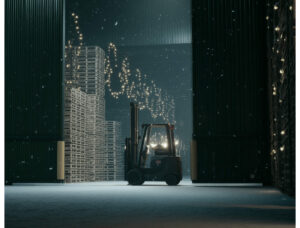While the world talks plastics, we’re building the future with wood
From 5 to 14 August, governments, scientists, NGOs, and industry representatives are gathered at the Palais des Nations in Geneva for the second part of the fifth session of the Intergovernmental Negotiating Committee (INC-5.2) on plastic pollution. The goal: to agree on the text of a legally binding treaty that could address plastic production, waste, and the entire lifecycle of materials.
The discussions are taking place against a backdrop of urgency. Plastic pollution has reached every corner of the planet, from deep-sea trenches to Arctic ice, and current measures have not been enough to stem the tide. While expectations for the Geneva talks are high, the heavy representation of petrochemical lobbyists has raised concerns that the final agreement may place too much emphasis on recycling. Recycling has its place, but it cannot be the main strategy for tackling the root cause: the overproduction of virgin plastic.
Moving past ‘better plastic’ toward truly circular solutions: Wooden Pallets
The Sustainable Pallet Association (SPA) believes that the answer isn’t making plastic “better”, it’s scaling up materials and systems that are inherently circular. Wooden pallets are a prime example. Produced from responsibly sourced, renewable timber, they can be repaired and reused many times during their service life. At the end of that life, they are recycled into other wood products, ensuring that the material remains in productive use and avoids landfill or incineration. This is not theoretical: SPA members apply these principles every day across Europe’s supply chains, preventing millions of pallets from becoming waste each year and delivering substantial environmental gains in the process: each cubic metre of wood stores roughly 0.8 tonnes of CO₂. Over its lifecycle, a wooden pallet therefore has a net climate impact of about –16 kg CO₂ equivalent, making it a proven low-carbon, circular solution.
A level playing field for sustainable logistics
As the world discusses how to curb plastic pollution in Geneva, these figures show that renewable, reusable solutions like wood are not just possible, they are already making a measurable difference. This also aligns directly with the ambitions of the European Green Deal and the EU’s Packaging and Packaging Waste Regulation (PPWR). However, current draft rules risk unintentionally favouring highly standardised plastic systems over open, repairable wooden systems, simply because the former are easier to monitor in closed loops. If we are serious about a level playing field for sustainable solutions, legislation must account for the environmental advantages of wood in both open and closed logistics systems.
From policy talk to action
As the INC-5.2 negotiations continue in Geneva, SPA calls on policymakers to use this moment to look beyond incremental improvements to plastic, and work together to promote renewable, reusable materials that already meet circular economy goals today. Wooden pallets show that economic efficiency and environmental responsibility already go hand in hand, and that the shift to sustainable logistics is already happening. With SPA members driving it forward.






